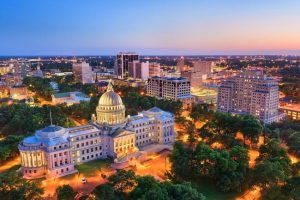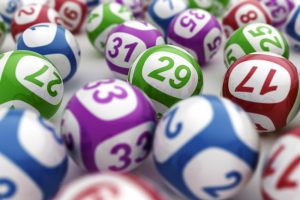 The addition of a lottery to the gambling landscape of the state of Mississippi has been one of the major concerns of local lawmakers, as a special legislative session could be called over the next few weeks by the Republican Governor Phil Bryant.
The addition of a lottery to the gambling landscape of the state of Mississippi has been one of the major concerns of local lawmakers, as a special legislative session could be called over the next few weeks by the Republican Governor Phil Bryant.
State lawmakers have been aimed at generating approximately US$200 million per year in order to pay for some improvements brought across Mississippi. Governor Bryant, on the other hand, has revealed his intentions to call a special lawmaker session in August, in case that the leaders of the local House and Senate reach an agreement on the broader outlines of a funding plan.
The Republican Governor has made a suggestion to use money collected from taxes imposed on online sales, an establishment of a lottery as well as on the newly-legalized sports betting services.
According to the National Conference of State Legislatures, Mississippi is one of the six states, along with Alaska, Alabama, Nevada, Utah, and Hawaii, which does not have a lottery for the time being. The state saw its first legal dockside casinos open in August 1992, and only a few months later, in November 1992, local voters decided to lift the state constitution’s ban on a lottery. Despite this step, state legislators have never rolled out a new state law to bring a lottery to life, partly because of the fact that some religious groups opposed to the matter.
Lottery Taxes Described as Unreliable Source of Revenue
 According to a new research commissioned by a local charity organization, The Pew Charitable Trusts, taxes imposed on gambling services, including sports betting and lotteries, as well as taxes on tobacco and alcohol, are a tempting but at the same time not so reliable source of revenue for US states.
According to a new research commissioned by a local charity organization, The Pew Charitable Trusts, taxes imposed on gambling services, including sports betting and lotteries, as well as taxes on tobacco and alcohol, are a tempting but at the same time not so reliable source of revenue for US states.
The project director for state and local fiscal health of Pew Charitable Trusts, Mary Murphy, commented on the matter last week, during a conference call concerning the study. Ms. Murphy explained that it was not likely for such taxes to bring the desired change for larger budget issues which were faced by many states.
As mentioned above, the addition of a lottery to the state of Mississippi has faced the opposition of some local religious groups. A lottery study group was created by Philip Gun of Clinton, a Republican House Speaker after the 2017 legislative session was brought to an end. The group made a research on the amount of money collected by neighboring states after lottery prizes were awarded to winners and expenses were paid during the budget year which ended on June 30th, 2016. According to the results of the study, the state of Tennessee managed to generate a total of US$395 million, the state of Louisiana collected US$177.9 million, while the state of Arkansas got US$85.2 million.
As revealed by the local state economist Darrin Webb in November 2017, the residents of Mississippi spend a total amount of between US$5 and US$10 million on an annual basis playing the lottery in Arkansas, and about US$30 million playing the lottery in the state of Louisiana.



















